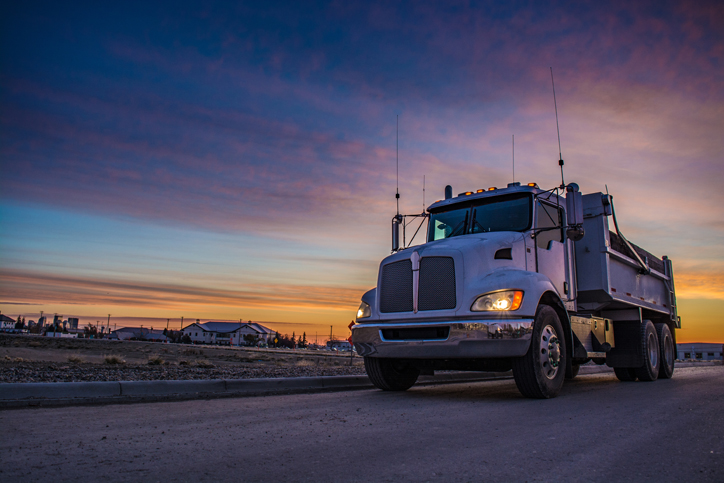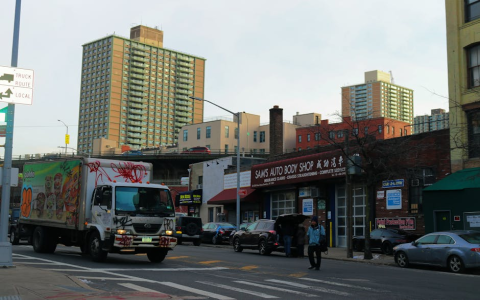Commercial Dump Truck Insurance: Get a Quote & Save
Commercial Dump Truck Insurance: Get a Quote & Save
If you’re running a dump truck business, you know that finding the right insurance isn’t just a formality—it’s a critical part of your operation’s financial safety net. The right commercial dump truck insurance policy protects your assets, your drivers, and your livelihood from unexpected events on the road and job site. But with so many providers and policy options, how do you navigate the market to find adequate coverage without overpaying? The key is understanding what shapes your premium and knowing where to look for legitimate savings. Getting a tailored quote from a specialist who understands the heavy haul industry can make all the difference, potentially saving you thousands of dollars annually while ensuring you’re never underinsured.
Why Your Dump Truck Needs Specialized Insurance
A standard commercial auto policy often falls short for dump trucks. The unique risks associated with your vehicle—like hauling heavy loads, operating on uneven terrain, and frequent lifting and dumping—demand a policy crafted for these specific challenges. General liability might cover a fender bender, but what about a rollover on a construction site or damage from a shifting load? A specialized commercial dump truck insurance policy is designed to address these scenarios. It typically combines the required liability coverage with physical damage protection for the truck itself and, crucially, coverage for the cargo you’re hauling. Without this specific protection, a single incident could lead to crippling out-of-pocket expenses.

Key Factors That Determine Your Insurance Premium
When you request a commercial dump truck insurance quote, providers assess a variety of factors to calculate your risk level and, consequently, your premium. Understanding these can help you position your business more favorably:
- Driving Records: The safety history of you and your drivers is paramount. Clean records signal lower risk.
- Vehicle Type and Age: Newer, well-maintained trucks with modern safety features may qualify for lower rates. The truck’s Gross Vehicle Weight Rating (GVWR) is also a major factor.
- Hauling Materials: Insurers will ask what you typically haul. Sand and gravel are viewed differently than potentially hazardous materials.
- Operational Radius: How far do you typically travel from your base? Local operations might be less expensive to insure than long-haul routes.
- Claims History: A past history of frequent or severe claims will likely increase your costs.
Comparing Coverage: What to Look For in a Policy
Not all commercial truck insurance policies are created equal. When reviewing your options, it’s essential to look beyond the price and examine the coverage details. Here’s a breakdown of common coverage types and why they matter for a dump truck owner.
| Coverage Type | What It Protects | Why It’s Important |
|---|---|---|
| Primary Liability | Bodily injury and property damage you cause to others. | Mandated by law. Covers costs if you are at fault in an accident. |
| Physical Damage | Your dump truck against collision, fire, theft, and vandalism. | Protects your significant investment in the vehicle itself. |
| Cargo Insurance | The materials you are hauling. | Covers the cost if your load is lost, damaged, or spills. |
| Motor Truck Cargo | A specific type of cargo coverage for hired transporters. | Essential if you are hired to haul others’ goods or materials. |
| Uninsured/Underinsured Motorist | You and your vehicle when the at-fault driver has no or insufficient insurance. | Critical protection given the high number of underinsured drivers. |
Proven Strategies to Lower Your Insurance Costs
Saving money on your commercial dump truck insurance doesn’t mean you have to sacrifice quality coverage. By being proactive, you can significantly reduce your premiums. Start by increasing your deductibles, which can lower your monthly payments. However, ensure you can afford the deductible amount if a claim arises. Bundling your policies, such as combining your auto and general liability insurance with the same carrier, often unlocks multi-policy discounts. Implementing a formal driver safety program and using telematics devices to monitor driving habits can also demonstrate risk reduction to insurers. Finally, pay your annual premium in full upfront if possible, as many companies charge fees for monthly payment plans.
Getting the Right Quote: A Step-by-Step Guide
To get an accurate and competitive commercial dump truck insurance quote, you need to be prepared. Gather all necessary documentation beforehand, including driver’s licenses and records for all operators, vehicle information (VIN, year, make, model), and details of your business operations. Be brutally honest about your claims history and the nature of your work. When speaking with agents, ask specific questions about discounts and whether they have experience with dump truck policies. According to a report from the American Trucking Associations, working with an agent who specializes in commercial vehicle insurance can lead to more comprehensive coverage and better rates. Get quotes from at least three different providers to compare not just price, but the scope of coverage and the reputation of the insurer for handling claims fairly and efficiently.
Answers to Common Dump Truck Insurance Questions
What is the single most important type of coverage for a dump truck?
While liability is legally required, physical damage coverage is often considered critical from a business perspective. It directly protects your asset—the truck—from costly repairs after an accident, fire, or theft, ensuring your business can recover quickly.
How can I immediately lower my premium after getting a quote?

Two of the fastest ways are to opt for a higher deductible and to remove any drivers with poor records from your policy. Also, ask the insurer to re-quote you with all applicable discounts applied, such as for safety features or paid-in-full discounts.
Is cargo insurance necessary if I only haul dirt and gravel?
Absolutely. While the material itself may not be high-value, the cost of cleaning up a spilled load, especially if it blocks a roadway or causes an environmental issue, can be astronomical. Cargo insurance protects you from these liability and cleanup costs.
Sources:
1. Federal Motor Carrier Safety Administration (FMCSA). “Safety.” https://www.fmcsa.dot.gov/safety
2. American Trucking Associations. “Industry Data.” https://www.trucking.org









